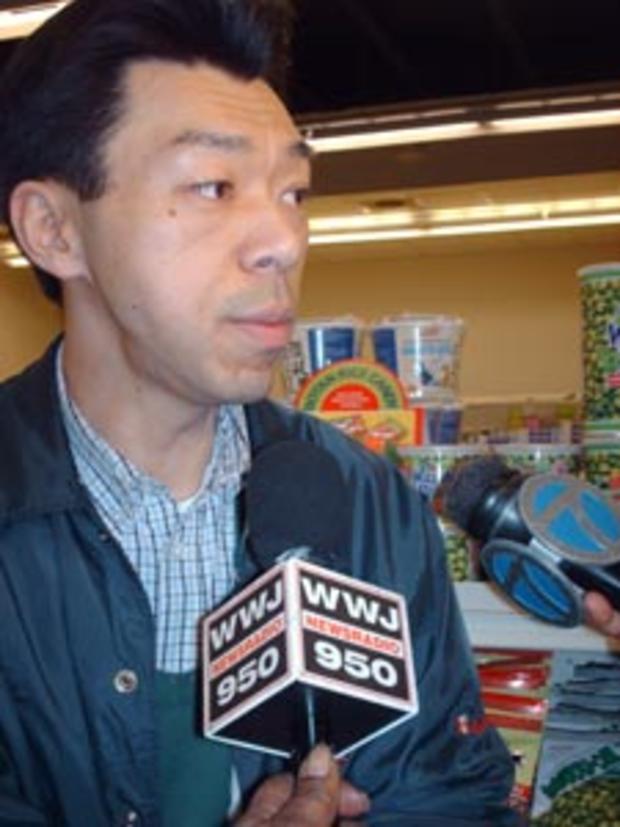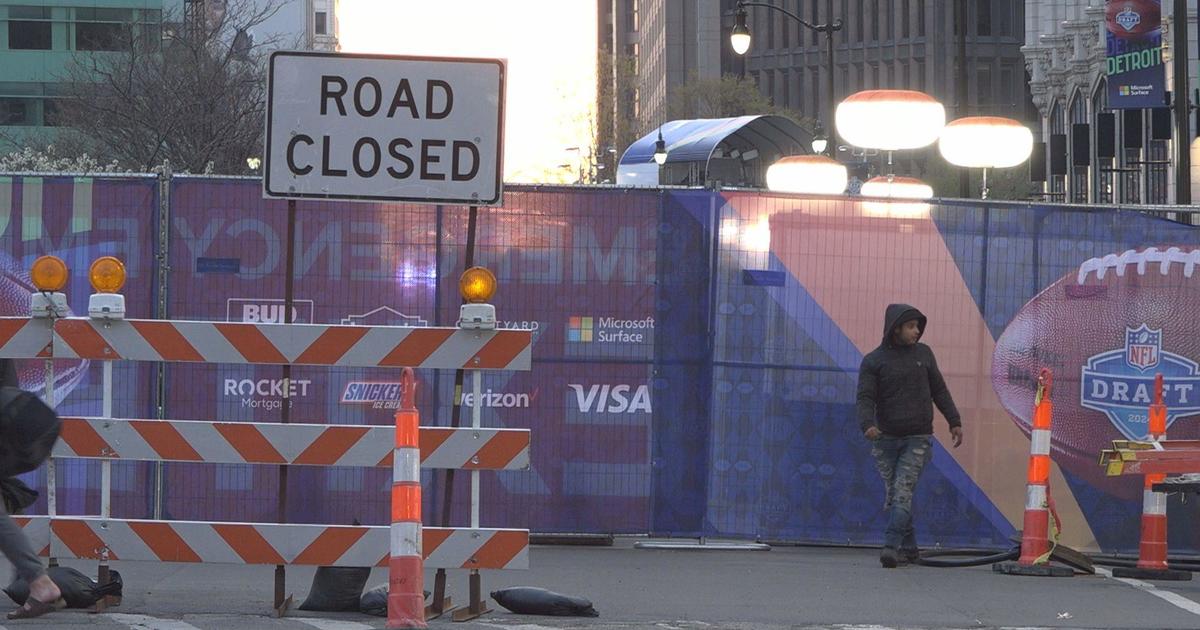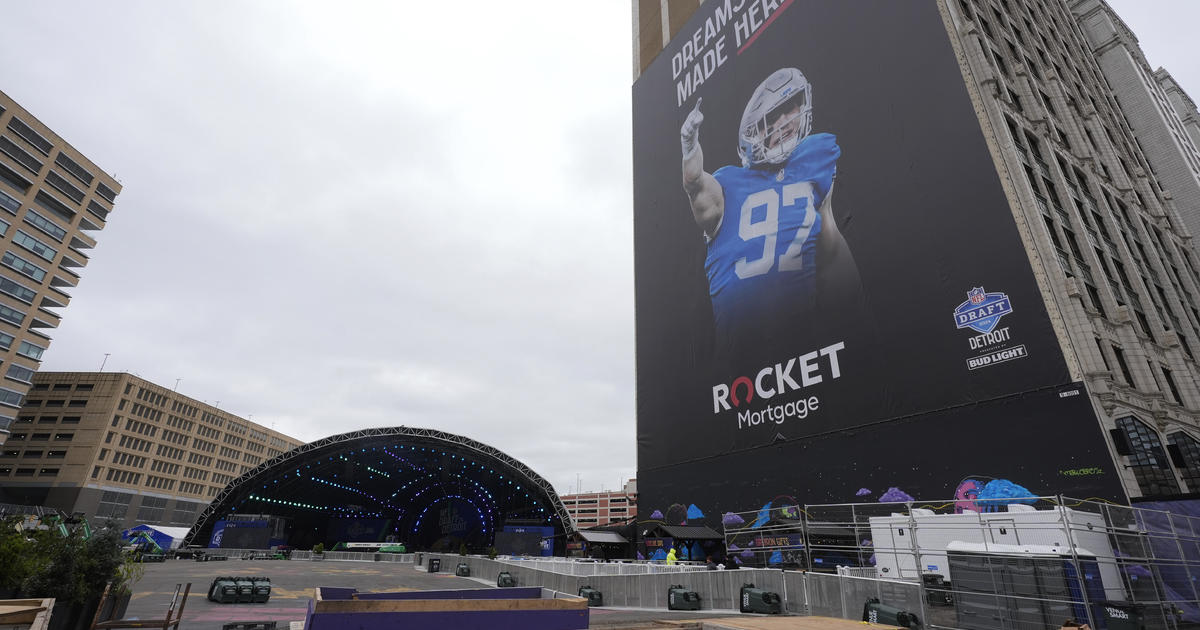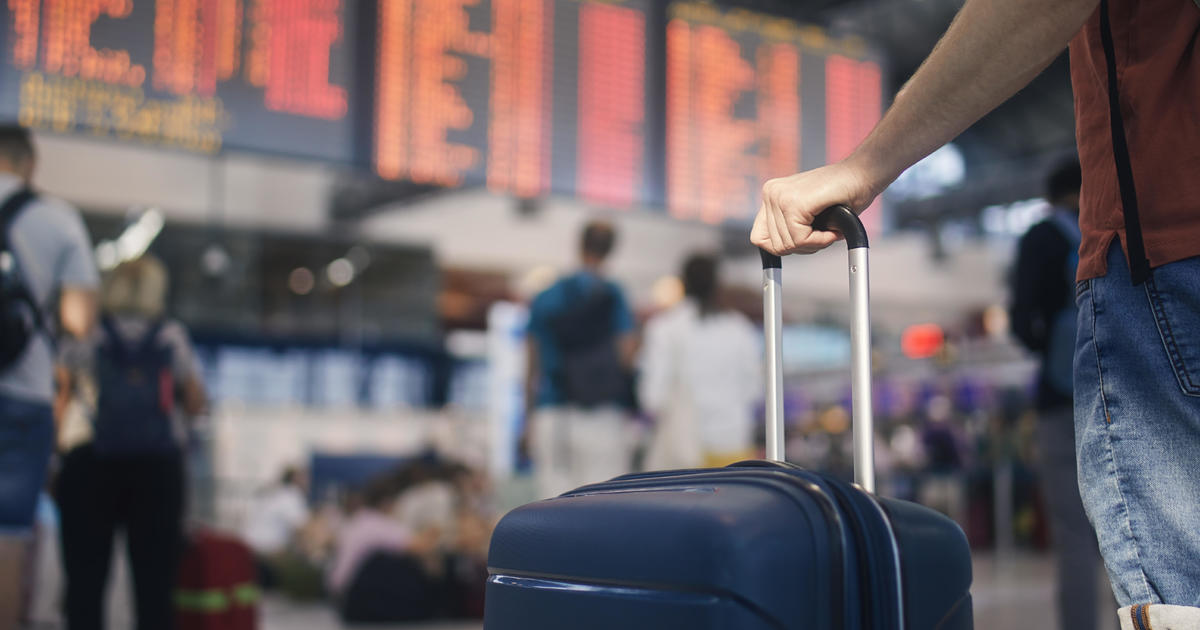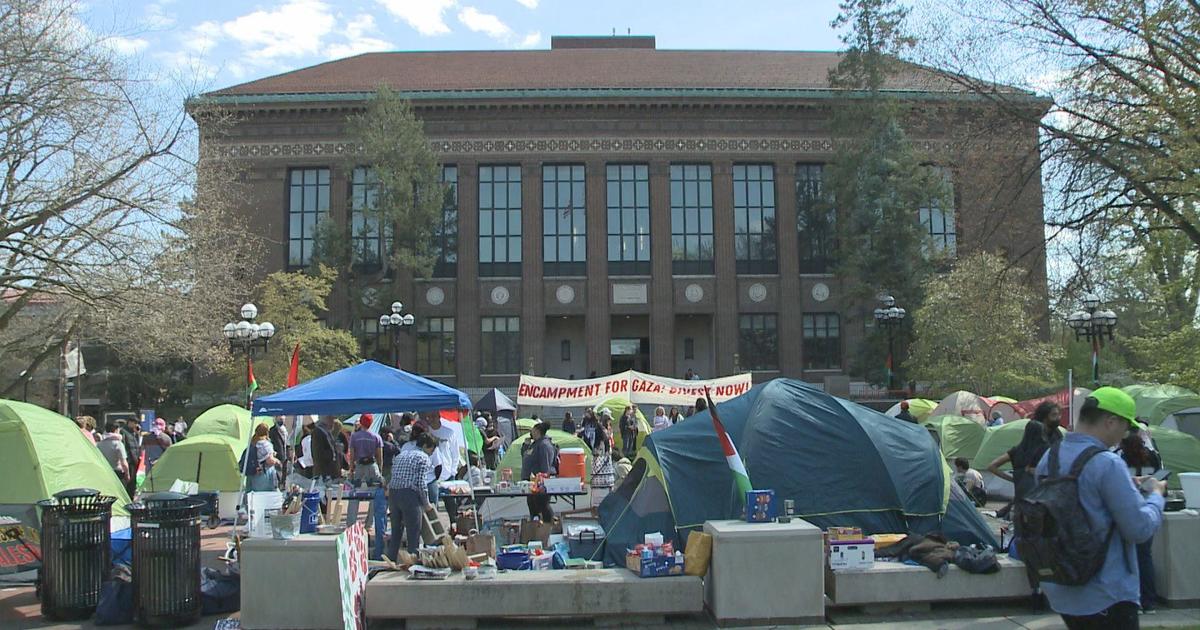Japan Earthquake Takes Its Toll Locally
DETROIT (WWJ) - As you have been hearing on CBS News, hundreds of people are already confirmed dead from the tsunami that roared ashore in eastern Japan, Friday, spawned by one of the biggest earthquakes ever recorded -- 8.9 quake on the Richter Scale.
Meanwhile, local residents are waiting to hear from their family members and friends who were in Japan when the devastation struck.
Kumiko Newman from Northville said she has been trying desperately to reach her parents, who live near the earthquake's epicenter.
"I tried to call and first I hear in Chinese, and then in English probably the same thing, saying that all the lines are busy," Newman said.
Newman said, ironically, she spoke with her mother last evening, just a few hours before the quake hit. She is also hoping to contact her brother and his family who also live in the quake zone.
In Novi, WWJ's Vickie Thomas spoke with Japanese bakery owner and her employees who were anxious to make contact with their friends and family around Tokyo. At Pastry House Hippo, Linda Okamoto said the past few hours were nerve-wracking.
"I'm really worried because my in-laws are very old right now, and I'm not sure if they'll be okay," she said.
Hayao Takahashi, who works at Novi's One World Market, said he mother and brother live in northern Japan. He hadn't been able get through on the phone. Takahashi said that he had last spoken to his mom to wish her a happy New Year, and now her just wants to make sure she's safe.
Kenji Yamada, owner of the Trenton-based Motor City Metal Jackets hockey team, was relieved to hear one of his coaches, who was visiting family in northern Japan when the quake hit, was safe.
Yamada, who also owns a firm based in Tokyo, said there is another problem for the millions who work in Japan's capital city.
"The commute trains and subways and public traffic system is shut down right now. So I think more than several millions of people cannot go home right now, waiting for the taxis or waiting for something," Yamada said.
Speaking live on WWJ, University of Michigan earthquake expert Dr. Henry Pollack said the overnight quake shows how restless and unpredictable nature can be.
"We're seeing a spade of particularly large ones, but I don't think that's anything particularly ominous. The earth behaves in unusual ways and right now its a little restless," Pollack said.
Pollack also explained how this tragic event will be a big test of Japan's earthquake construction processes..
"You always try to anticipate the worst that can happen and build accordingly. And I think that the lessons that will come from this as to how adequately the Japanese earthquake construction practices have stood up to this is going to be some of the most important information we can get," Pollack said.
Pollack said the resulting tsunami that worked its way across the Pacific Ocean was expected to be, in his words, "no trivial event" as it hit Hawaii and the West Coast.
George Klempert, owner of Family Heating, Cooling and Electrical, has a house in Maui, where the tsunami warning sirens started going off in the early Friday morning hours. But Klempert tells WWJ he was not worried.
"I feel rather safe. We're well above where there would be any problem if there was any major raise in sea level, but there really hasn't been," Klempert said. "We're watching on television Kauai, which is the first island the tsunamis would hit. They've had a slight rise in the water levels, but nothing to really report."
Tsunami waves swamped Hawaii beaches and brushed the U.S. western coast Friday but didn't immediately cause major damage after devastating Japan and sparking evacuations throughout the Pacific.
Water rushed up on roadways and into hotel lobbies on the Big Island and low-lying areas in Maui were flooded as 7-foot waves crashed ashore. Smaller waves hit the U.S. western coast and beaches were closed as fishermen fired up their boats and left harbors to ride out the swell.
Scientists warned that the first tsunami waves are not always the strongest, and officials said people in Hawaii and along the West Coast should watch for strong currents and heed calls for evacuations.
Following continuing coverage at CBSNews.com.
The Associated Press contributed to this report.
